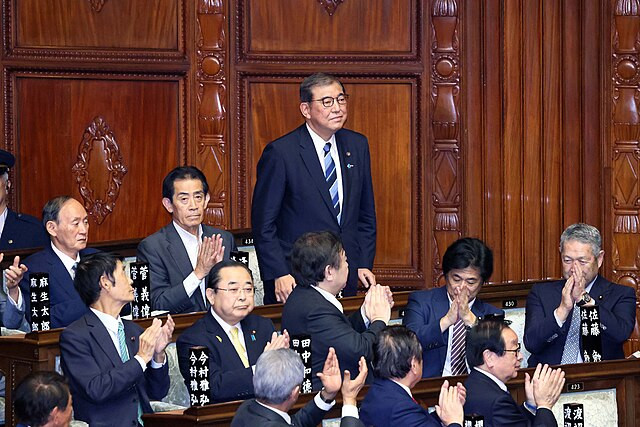Japan's newly appointed Prime Minister Shigeru Ishiba has outlined an ambitious agenda to strengthen national defense and invigorate the economy as he steps into leadership amid escalating regional tensions and domestic challenges. Elected as the head of the ruling Liberal Democratic Party (LDP) last week, Ishiba's ascent comes on the heels of his predecessor Fumio Kishida's resignation amid corruption scandals that plagued his administration.
In his first address to the press following a ceremonial swearing-in at the palace, Ishiba emphasized the need to bolster the Japan-U.S. alliance, which he regards as "the lynchpin" of Japan's defense and diplomatic strategy. "The security environment surrounding us is the toughest since the end of World War II," Ishiba stated, underscoring the urgency of reforming Japan's defense posture in light of increasing threats from China and North Korea.
Ishiba's administration is expected to foster a more equitable relationship with the United States, advocating for joint management of U.S. military bases in Japan and proposing the establishment of Japanese Self Defense Force bases in the U.S. "I've advocated the idea for more than 20 years and obviously it's not going to happen suddenly just because I became prime minister," he acknowledged, indicating the complexities of amending the bilateral status of forces agreement.
Amid the political turbulence, Ishiba has called for a snap election on October 27, asserting the necessity of securing a mandate from the people. "We need to have the people's verdict as soon as possible," he declared, with plans to dissolve the lower house on October 9. However, his decision to call for early elections drew criticism from opposition leaders, who accused him of bypassing essential policy discussions in favor of political expediency.
In assembling his Cabinet, Ishiba has emphasized security, appointing experienced figures like Takeshi Iwaya as foreign minister and Gen Nakatani as defense chief. While the Cabinet has been praised for its focus on security, it has also faced scrutiny for its lack of gender diversity, with only two women among the 20 ministers. Critics argue that increasing representation of women in government is essential for Japan to improve its global standing in gender equality.
Despite these challenges, Ishiba's long political career positions him to navigate the complexities of Japanese politics. Having served as defense minister and LDP secretary-general, he is regarded as a seasoned figure capable of bridging the divides within his party. Nonetheless, the recent leadership race revealed underlying tensions, as several candidates who opposed him have not been included in his administration.
Ishiba's leadership style is also characterized by a commitment to economic reform. He aims to address the rising cost of living and slow economic growth by proposing potential financial assistance for struggling households and advocating for a minimum wage increase. "I want this cabinet to be one that trusts the people and is trusted by the people," he emphasized during his first press conference.
The recent appointment comes at a time of significant political scrutiny for the LDP, which has governed Japan for most of the post-war era. With public sentiment increasingly weary of political scandals, Ishiba's leadership will be closely watched as he attempts to restore public trust and support ahead of the election. Polls indicate that despite the party's troubles, the LDP maintains a favorable position compared to the opposition parties, with a third of respondents expressing support for the LDP in a recent survey.
As Ishiba embarks on this critical phase of leadership, he faces the dual challenge of navigating a volatile security landscape in East Asia while addressing domestic issues such as economic recovery and social inequality. The new prime minister's proposals for deeper defense ties and economic revitalization will be pivotal in shaping Japan's future direction and its role on the global stage.






